 Stephen Geller Katz LCSW-R
Stephen Geller Katz LCSW-R
Misophonia Cognitive Retraining Therapy
 Stephen Geller Katz LCSW-R
Stephen Geller Katz LCSW-RMisophonia Cognitive Retraining Therapy
Misophonia Cognitive Retraining Therapy, as featured on the MTV True Life episode: “I Have Misophonia” premiering Friday, December 16th, 7:00 PM EST. See Clip >
|
|
|
| Moderate to severe anxiety triggered by chewing sounds, including: | ||
|
|
|
You may also be affected by visual stimuli, such as repetitive foot or body movements, fidgeting or movement you observe out of the corners of their eyes. Intense anxiety, rage and avoidant behavior may develop as a result of misophonia.
 * Do you feel your family and friends don’t understand how much you suffer?
* Do you feel your family and friends don’t understand how much you suffer?
* Do you often feel you can just suffer through a social event where there is eating present only to find that you must “escape” before you have a panic attack?
* Do you find that some people are at first understanding and make some efforts not to make the triggering sounds in front of you, but soon forget and constantly have to be reminded, causing you to feel angry, anxious and depressed?
* Are you avoiding social activities that you enjoy because of the misophonia?
* Are you fearful of losing your job and/or is the misophonia effecting your job performance?
You may be a candidate for Misophonia Cognitive Retraining Therapy, or MCRT.
Stephen Geller Katz, LCSW-R, with over 20 years of clinical experience, a New York University graduate, developed Misophonia Cognitive Retraining Therapy and founded Misophonia Cognitive Center™ in response to the growing number of people with Misophonia coming to his private practice from audiologists and ENTs. He discovered that by helping people to retrain and reinterpret the thoughts around their Misophonia, anxiety and depression symptoms began to improve. But even more important so did the Misophonic trigger response.
Severe phonological disorder is a speech disorder highly common in young boys. In this condition, children are unable to organize sounds in a proper pattern. Their brain either excludes a sound in a word or disarranges the words. Also, they cannot pronounce the correct sounds of words.

(Source)
For instance, when children are learning to speak, they usually exclude a syllable or word because their brain couldn’t process that sound. Also, they cannot understand the two-consonant words.
Although children face problems pronouncing phonetics at an early age, many learn to cope with the problem. However, some cannot cope with these developmental issues. Here are some types of phonological disorders:
When a child is suffering from a consistent phonological disorder, they follow one or two error patterns that are non-developmental which are unusual at their age.
When a child is suffering from an inconsistent phonological disorder, they follow many error patterns that are non-developmental which is unusual at their age. Furthermore, they use multiple pronunciations for a single word. They create many phonological errors and fail to recognize the difference between words.
Schools for young children teach phonetics to improve the development process. The goal of early school is to help a child through phonological speech processes. Many schools have comprehensive phonics programs for children to help them recognize different sounds and words. But, English contains numerous irregular words that are hard to understand for children.
These words are known as high-frequency words or sight words. These irregular words don’t follow the standard rules of phonetics. Thus, children struggle to understand those words. However, if a child is suffering from a severe phonological disorder, their brain cannot process the difference even if they try hard.
Severe phonological disorder is more common in boys than girls. Since there are few studies, the actual cause of this disorder is still unknown. In a few cases, doctors found that close relatives of children suffering from severe phonological disorder had the same problem, which indicates that it’s a genetic disorder. Many parents who can’t afford to enroll their children in early-age schools notice this problem in their children.

(Source)
Children with severe phonological disorders have damaged nerves or brain parts. These nerves control the muscles to create speech. For instance, problems with cerebral palsy can cause severe phonological problems.
When your child fails to develop a normal speech pattern at a certain age, they might have a severe phonological disorder. For instance, if your child reached the age of three and a stranger can’t recognize the words they are saying, you should take them to a doctor.
By the age of 4 or 5, a child should pronounce complicated sounds such as th, sh, and ch. If they can’t produce these sounds, they need help. If your child is unable to pronounce difficult words by the age of 7 or 8, they have a severe phonological disorder. For instance, if they say “fiend” instead of “friend”, you should take them to a professional doctor.
Family members can easily recognize these problems with the child, but outsiders can’t identify it as an error. If your child makes any of the above-mentioned mistakes, they have severe phonological speed disorder.
Conditions such as tinnitus, misophonia, and severe phonological disorder are not life threatening diseases, but you should take them serious. If your child develops any of these diseases, it will disrupt with their development process.
When you identify that your child is suffering from a severe phonological disorder, you should visit a specialist who can help your child with pronunciation problems. The Misophonia Cognitive Center™, founded by Stephen Geller Katz specializes in sound disorders such as misophonia and tinnitus. If you want more information about the severe phonological disorder, you should give us a call at 646-585-2251.
Stephen Geller Katz LCSW-R
19 West 34th Street
Penthouse Floor
New York, NY 10001
646-585-2251
Tele-Video Sessions
Speak 5 languages
International Patients Welcome
Do you find repetitive sounds such as pen clicking, feet tapping, and the clock ticking difficult to tolerate? If yes, then you may be suffering from misophonia. Another similar sound disorder is tinnitus, which causes ringing sensations in the ears. Let’s learn more about misophonia and sound disorders.

(Source)
Sniffing, chewing, and scratching are some sounds that trigger extreme emotions in people with misophonia. These sounds can be frustrating and annoying for anyone. That said, misophonia patients can’t control their emotions when they hear such sounds and tend to lash out. They have selective sound sensitivity syndrome, which makes these sounds unbearable for them.
You can easily identify a person with misophonia through various symptoms. Whenever they hear triggering sounds, they show a strong negative reaction to stop that sound. Their reaction might include different emotions, feelings, and physical sensations. Here are some symptoms of misophonia:
Misophonia patients experience these symptoms when they are teens or around puberty. Once they develop the condition, it stays with them throughout their life. If you have misophonia, you will experience harsh responses to certain sounds. People with this condition struggle to control their reactions and reduce the intensity of their anger.
If you have a hard time dealing with the sound, you should consult a professional doctor. The doctor will identify your triggers and identify an effective treatment for your condition.
Various people suffering from misophonia experience different triggers. The common trigger for this condition is chewing sound. Many statistics suggest that oral sounds are common triggers for misophonia. Here are some common triggers for misophonia:
According to various studies, misophonia can a symptom of an underlying condition. These conditions are:
Misophonia doesn’t have a proper treatment procedure, but you can manage your symptoms. Here are some ways to manage misophonia and sound disorders:
Tinnitus retraining therapy helps with tinnitus and other sound disorders as well. With the help of this technique, you can reduce the intensity of triggering sounds.
In this treatment, the doctor will blend the weaker sound with your favorite song or sound. According to a 2015 case study, a woman suffering from misophonia uses this technique to reduce sound trigger response.
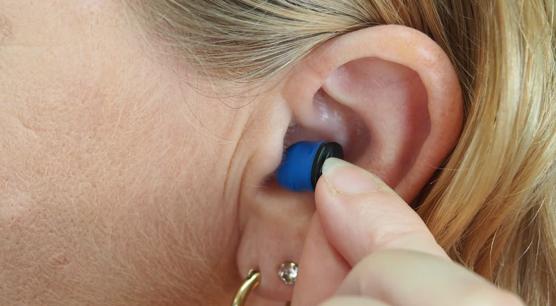
(Source)
There are many coping devices and techniques you can use to reduce the effect of the triggers. Here are some techniques:
You can consult a doctor to help you with misophonia. The doctor will identify the actual cause of the condition. Also, they will determine your triggers and recommend effective techniques. For instance, cognitive behavioral therapy to navigate physical sensations and emotions caused by irritating sounds.
Do you want to visit a doctor to help you with misophonia? If yes, then you should contact the Misophonia Cognitive Center™ in NYC. Our specialist Stephen Geller Katz has over 20 years of expeerience treating and curing people with sound disorders.
Misophonia Cognitive Center™
19 West 34th Street
Penthouse Floor
New York, NY 10001
646-585-2251
Tele-Video Sessions
Speak 5 languages
International Patients Welcome
Selective sound sensitivity is a syndrome, where certain sounds trigger emotions and cause an extreme outbreak. This condition is quite common in the US and popularly known as misophonia. If the doctor says that you are suffering from misophonia, it means you have selective sound sensitivity syndrome.
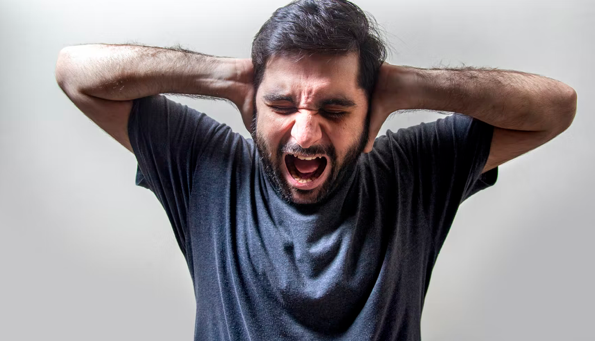
(Source)
People often struggle to control their emotions with Misophonia and violently lash out whenever they hear triggering sounds. The common symptom of this condition is aggression, anger, and irritation.
Some of these reactions seen in misophonia are:
Some experts suggest that the response of a person suffering from misophonia is a fight or flight response, while others consider it automatic. The fight or flight response or acute stress response is a natural response of your body to handle threatening conditions. You will also experience these symptoms:
Specialist don’ have specific diagnostic guidelines to follow for Selective Sound Sensitivity. Even Diagnostic and Statistical Manual of Mental Disorders, Fifth Editions doesn’t contain official diagnosis criteria.
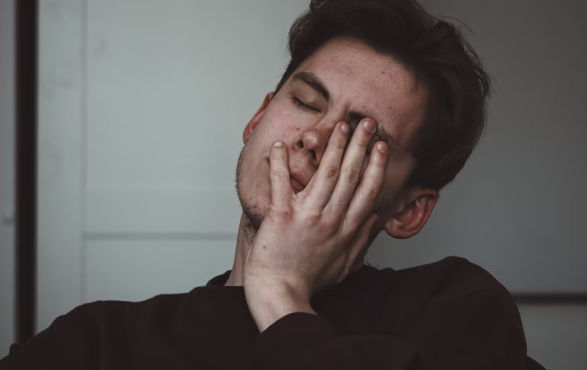
(Source)
According to the research, Misophonia resembles some psychiatric conditions such as intermittent explosive disorder, OCD, and specific phobias. However, the entire patterns and symptoms of this condition don’t resemble misophonia. Here are some diagnostic criteria of Selective Sound Sensitivity:
Since professionals didn’t recommend any official diagnostic criteria, doctors can evaluate the treatment through their experience and skills. After diagnosis, they will use different techniques and therapies to reduce the symptoms.
Misophonia is a condition without established treatments by professionals. That is why you cannot receive complete treatment for this irritating condition. But, that doesn’t mean you cannot seek relief from misophonia. Several doctors use different treatments to reduce misophonia symptoms. Here are some of the treatments:
Doctors use this treatment option to reduce negative thoughts like with a certain sound. In this treatment, the doctor identifies the triggering sounds to reduce your response to them. According to a Journal of Affective Disorders study, about 50% of misophonia patients found CBT effective. They were able to reduce their symptoms after taking therapies.
You cannot find approved medications for misophonia treatment as there are few studies for this condition. But, doctors will prescribe medication to reduce related conditions, such as depression or anxiety.
In this treatment method, doctors recommend a sound device to divert your attention from triggering sounds. This approach will help you ignore the noises and minimize automatic stress response. TRT treatment is common for Tinnitus patients.
People with Selective Sound Sensitivity such as misophonia struggle to control their responses to certain sounds. But, various treatments can reduce their sound triggers. Some therapies use auditory distraction techniques to improve an individual’s response, others utilize a psychological approach.
If you think you have Selective Sound Sensitivity, then you should visit a reliable sound specialist, Stephen Geller Katz. He has more than 30 years of experience treating sound conditions such as Misophonia and tinnitus.
Contact Dr. Katz to learn more about this condition and treatment options today:
Stephen Geller Katz
19 West 34th Street
Penthouse Floor
New York, NY 10001
646-585-2251
Tele-Video Sessions
Speak 5 languages
International Patients Welcome
Do you hate or dislike certain sounds and lose control when you hear them? If yes, then you may be suffering from misophonia. Misophonia is a condition that creates emotional turmoil when a person hears a certain sound. Many people are unsure whether they can find a treatment for misophonia or not. In this post, we will find how you can cure this condition.

(Source)
Since there are limited studies about this condition, experts are unable to identify a cure. That said, experts are not even sure about the actual causes of the condition. Thus, we need more research on the subject. Until now, we don’t have a proper treatment for the condition, but you can reduce the impact of the triggering noise.
Treatments such as cognitive-behavioral therapy can help people with misophonia. The treatment doesn’t cure the condition, but it improves your ability to tolerate the sounds and noises. Many people find therapy effective for reducing background noise. Here are some methods to reduce the intensity of the condition:
Although tinnitus retraining therapy helps mitigate ringing in the ear, people also use this treatment to cope with misophonia. It is a natural method to reduce the irritation caused by certain noise. With the help of this therapy, you can eliminate the challenges you face in your daily life due to misophonia.
Cognitive-behavioral therapy is similar to TRT, but there are still many differences in both strategies. In this therapy, the doctor will change your mind by connecting a positive sound with the negative thinking pattern. This means that whenever you listen to a triggering sound, you can reduce its effect by blending peaceful and soothing sounds.
A doctor might also recommend dialectical behavior therapy to manage the emotions. This technique includes various techniques for:
Finally, progressive muscle relaxation can help you mitigate the negative effects of the therapy. The therapy will keep you relaxed and help you learn ways to tolerate irritating sounds.

(Source)
Many people with misophonia found white noise effective to reduce their reactions to the triggers. You can use ear-level devices or room-level devices to reduce the effect of certain sounds. A doctor can recommend you an effective device that can help you with misophonia. Also, you can play white noise on your mobile phone to blend the negative effect of the triggering sound.
There isn’t any medication dedicated to the treatment of misophonia. However, a doctor can prescribe medication to manage symptoms. For instance, if you experience severe stress while listening to a certain sound, the doctor will recommend a stress-reliever.
Doctors suggest various therapies such as neuro-feedback, biofeedback, and hypnotherapy to reduce the effect of misophonia. If you want to find an effective therapy to cope with certain sounds, you should consult a professional doctor.
Are you suffering from misophonia and are in need of a specialist? If yes, then you should visit the Misophonia Cognitive Center™. Stephen Geller Katz has over 20 years of experience treating patients suffering from misophonia. Dr. Katz has cured patients suffering from this condition.
Schedule an appointment to know more about this condition & treatment options.
MISOPHONIA COGNITIVE CENTER™
Stephen Geller Katz
19 West 34th Street
Penthouse Floor
New York, NY 10001
646-585-2251
Tele-Video Sessions
Speak 5 languages
International Patients Welcome
Sometimes certain sounds can negatively affect a person to an extreme degree. Often termed “sound disorders”, misophonia & tinnitus are the two most prominent and common of these types of sound related conditions. Even though these conditions are different, many people are unable to differentiate between them. Therefore, in this article, we will discuss the relation and differences between Tinnitus and Misophonia.
Tinnitus is a sound disorder also known as ringing in the ear. People suffering from this condition consistently hear different noises without any external source. The sound can be constant, or it may fluctuate. There can be numerous reasons you hear this sound in your ear. It may be due to a bacterial infection or high blood pressure. But, in most conditions, people develop this condition due to loud noise exposure.
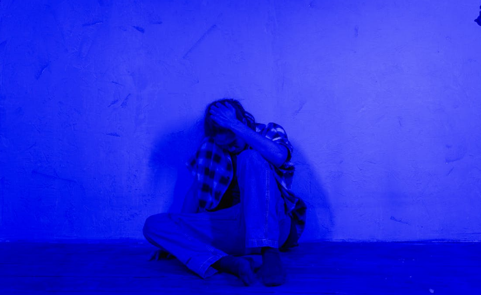
In this condition, people hear different types of noise such as whistling, buzzing, hammering, and ringing, which is the most common sound. When someone visits a concert or club with high levels of noise, they risk developing tinnitus. Therefore, it is important to wear safety earplugs when you are around loud noise. Because the effects of tinnitus are irreversible, you should take safety measures. You should better be safe than sorry.
Tinnitus may develop suddenly or gradually depending on the cause. Experts are still unaware of the actual cause of the condition. But, some suggest that it occurs due to various reasons. Here are some causes related to tinnitus:
However, about one out of three Tinnitus patients don’t develop the condition due to any ear or hearing problem.
Misophonia is a psychological condition, but many people consider it to be hearing damage. Since there is limited research about this condition, fewer people are aware of it. Misophonia is different from tinnitus in the way that it is caused by an external source. Misophonia isn’t the result of damage to the ear. But the brain considers some sounds to be more triggering than others. Perhaps their brain associates some sounds with a traumatic event. Therefore, whenever they hear the sound, their brain responds aggressively. People with this condition consider certain sounds so annoying that they become angry and violent. Their brain creates emotional and fight-or-flight situations. The triggering sound in this condition includes swallowing, chewing, smacking, and sniffing. A study found that about 80% of the triggering sounds that a person with misophonia cannot stand are related to the mouth. They include chewing, popping gum, slurping, eating, and whispering. However, around 60% of sounds were repetitive. A person suffering from misophonia may also react negatively to visual triggers.
People may show different reactions ranging from downright aggression to annoyance. They might feel certain sounds so severe that it is hard to avoid. Their reaction has direct consequences on their happiness. Experts should conduct more research about this condition. Currently, this condition isn’t considered a psychiatric condition, and the mechanism is still unknown. But once researchers learn more about this condition, we will be able to treat this condition. But right now, people with misophonia can only cope with triggering sounds.
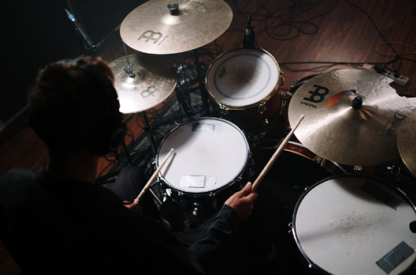
Like Misophonia, there is no cure for tinnitus. But, experts use various masking techniques to reduce the effects and symptoms of the condition. When you visit a professional doctor for tinnitus, they will diagnose your condition to determine the underlying cause. However, with misophonia, the doctor will identify your triggering sounds. For instance, when the actual cause of your tinnitus is wax accumulation, the doctor will treat you by removing the wax. But when the doctor identifies the triggering sound for misophonia, they can use the masking technique to help you cope with the sound. Here are some methods a doctor will use to reduce the symptoms of tinnitus and misophonia:
A sound specialist will try different soothing sounds to distract you from these conditions. The neutral sounds include the sound of water, birds, animals, and even ASMR. White noise is also helpful in both these conditions.
Counseling helps the patient understand the condition they are suffering from. These therapies intend to suggest a coping mechanism. When you know effective methods to cope with the condition, you can quickly recover.
This type of therapy changes the way you think about triggering sounds which will make the sounds less obvious and noticeable.
This therapy help retains how your brain responds to certain sounds. As a result, the triggering sound will be less obvious. This technique is also helpful for misophonia.
The sound disorders misophonia & tinnitus burden day to day life. Do you live in NYC and want to consult with a specialist in treating and in some cases curing sound disorders? Give us a call and discuss your condition with our expert. At the Misophonia Cognitive Center™, we help people with misophonia tackle symptoms and cope with their condition. Contact us tody and avail a free consultation with Stephen Geller Katz.
MISOPHONIA COGNITIVE CENTER™
Stephen Geller Katz
19 West 34th Street
Penthouse Floor
New York, NY 10001
646-585-2251
What are the main sound disorders causes & treatment? Misophonia or selective sound sensitivity syndrome is a sound-related condition that leads to aggression, anger, and irritation. People with misophonia cannot stand some types of sounds. When they hear a triggering sound, they lash out because they can’t handle their mind’s aversion to the sound. Triggers may vary from one person to another. For instance, many people find pen tapping triggering but chewing doesn’t bother them as much.
Let’s not forget that what triggers one person won’t necessarily trigger someone else. Reactions range from running away, annoyance and even rage. Misophonia is an under-researched and poorly understood condition. Before 2000, people referred to this condition as selective sound sensitivity syndrome. Then, experts selected the Greek word misophonia to name the condition. In 2011, various new channels aired stories about misophonia to increase awareness.
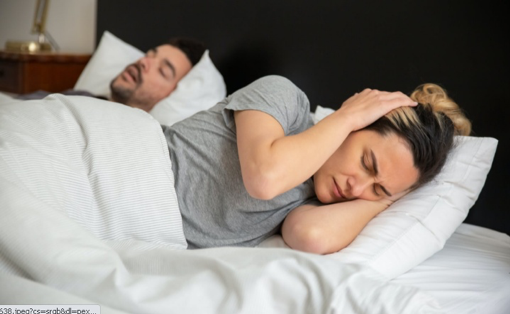
Because there has been limited research on this topic, we know little about the exact causes. However, experts came up with the following factors as cause the emotional response.
Research indicates that people with misophonia have differing brain connectivity between the auditory cortex and the anterior insular cortex. The anterior insular cortex or AIC is a section of the brain that’s responsible for emotional processing.
People with Tourette syndrome, obsessive-compulsive disorder, and anxiety disorders develop misophonia.
Many people suffering from misophonia confirmed that they initially had tinnitus. With time, their tinnitus grew worse, and now, they lose their patience when they hear certain sounds.
Misophonia is a genetic condition that can run in the family. So, if a member of your family suffers from the condition, you are likely to develop it as well.
Many people create awareness about this condition through social media platforms. Nevertheless, research is lacking. As we have little data, we cannot pinpoint the actual reason for the condition
Some researchers suggest that misophonia is becoming a common condition. Hence, experts should understand the symptoms and mechanisms of this condition. Furthermore, professionals should come up with an effective treatment plan to reduce its effects.
When you visit a doctor to address the condition, they use a hearing test to identify the issue. An ordinary doctor can’t diagnose misophonia and similar conditions. Therefore, you need to visit an audiologist, who is a hearing specialist. To consult with an audiologist in NYC, contact Misophonia Cognitive Center.
The audiologist will instantly run advanced listening tests and identify the triggers by making different sounds and examining their responses. For instance, they might tap a pen or stump on the floor. An audiologist measures the reaction by attaching painless electrodes to the ears. This way, they can record the brain’s reaction to the sound.
Misophonia doesn’t offer any proper treatment, but you can choose different therapies to reduce the effects of this condition. Here are some therapies that you can opt for with this condition:
This type of therapy is helpful to remove associations and negative thoughts about certain triggering sounds. When you stop perceiving triggering sounds as negative, you can avoid an adverse reaction. A study published in the Journal of Affective Disorders suggests that about 50% of people living with misophonia faced a reduction in symptoms after taking CBT.
There is no approved medication for misophonia. As a result, audiologists suggest medications for depression or anxiety to address these co-occurring conditions.
This preventive method involves wearing a device that diverts your focus from the triggering noises. The more you pay attention to the sound, the more of a negative response your brain will generate. Therefore, ignore the noises by learning and practicing these relaxation techniques. The therapy is perfect for minimizing automatic stress response. Traditionally, people used Tinnitus Retraining Therapy for Tinnitus. It significantly reduces the impact of triggering noise to your brain and improves your focus on the main goal.

Other than treatments, you can adopt some coping strategies, lifestyle changes, and relaxation techniques to reduce misophonia symptoms. Here are some strategies you should try:
Also, talk to others about your condition to see if they can help. That way, people won’t make that noise when you are around. For instance, if someone is whistling or chewing gum and you feel annoyed, talk to them about your negative response.
Get a free consultation from world renowned expert in sound disorders, Stephen Geller Katz LCSW-R, and make an appointment. Dr. Katz has successfully treated thousands of patients with these types of disorders from all over the world.
Call today to schedule a free consultation on phone or online video session:
MISOPHONIA COGNITIVE CENTER™
Stephen Geller Katz LCSW-R
19 West 34th Street
Penthouse Floor
New York, NY 10001
646-585-2251
What are the main treatments for sound disorders? There can be instances where normal daily sounds like chewing, tapping a pen, or even wagging your feet can cause misophonic reactions in certain people. They are highly intolerant to certain specific sounds and show aggression in response.

(Source)
It is a highly disturbing and lifestyle-altering mental health condition that makes it troublesome for many people to enjoy their social lives. The sounds can become unbearable and cause them to lash out. Nonetheless, there are several different ways to cope with and treat the symptoms of this condition to ensure a peaceful and minimally disturbed life.
Misophonia, also known as selective sound sensitivity syndrome, was first classified as a condition during the early 2000s. Besides, there are many scientists and researchers are investigating whether to consider Misophonia as a real sound disorder as the symptoms are mild to severe.
Despite that, there is a lack of research and studies to confirm most of the potential claims and reasons. Moreover, it is not yet a recognized sound disorder in the DSM-5 (Diagnostic and Statistical Manual of Mental Disorders- Fifth Edition. Therefore, official diagnostic criteria and principles do not exist.
Also, Misophonia can have an average onset during the ages of 11-12 years old. Still, there is a need for effective research and experiment results to reach valid conclusions for this neurological disorder.
The hypersensitivity to certain normal sounds can trigger harsh and aggressive reactions from misophonic people. The reactions can differ in misophonic people, and one may show aggressive behavior while the other may feel annoyed hearing the same noise.
Overall, Misophonia triggers an autonomic and nervous system reaction, i.e., a “fight or flight” response. Thus, a misophonic person will experience either irritation and try to evade trigger sounds or lash out. Such uncertainty and discomfort can affect a misophonic person’s lifestyle. Eventually, they may struggle with depression, anxiety, bipolar attitude, etc.
Multidisciplinary approaches (e.g., psychiatry, audiology, primary healthcare) are the best Misophonia treatments. Many audiologists specialize in helping misophonic patients rewire their brain’s auditory portion. Their main tool of helping misophonic patients is sound therapy, through which they try to regulate a misophonic person’s reaction to the trigger sounds.
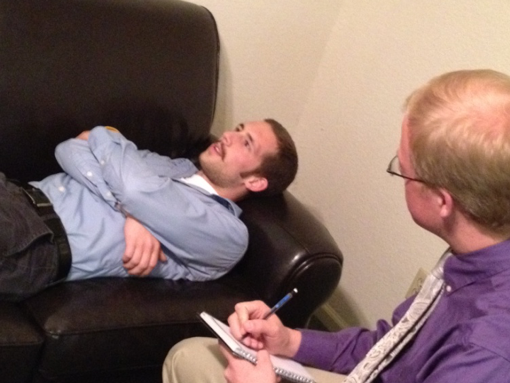
(Source)
The treatment may prolong according to the complexity and severity of the patient’s condition. In addition to that, slight results might appear in the first few weeks of the treatment.
Nevertheless, despite the enthusiasm and dedication to mental wellness, the treatment may not yield results overnight. Firm dedication and family support are a plus for effective Misophonia treatment as the condition can largely affect the lives of people around you.
Initially used as a tool for treating tinnitus in people, Tinnitus Retraining Therapy involves the use of attention-redirecting sounds to treat Misophonia. The sounds in TRT can help in diverting the attention and focus of a misophonic person. Subsequently, this can ensure a reduction in the severity and reaction appeal of certain sounds, such as chewing, pen tapping, screeching, etc.
It can also help misophonic people to ignore and reduce the autonomic stress that can lead to irritation and aggressive behavior.
Cognitive Behavioral Therapy (CBT) focuses on the mechanism and the thought process that leads to adverse reactions and thinking in misophonic patients. Hence, CBT helps in improving the negative thought process and the anticipation of sound triggers. Conclusively, it can help in reducing patients’ responses to certain trigger sounds and perceive them in a different way.
Counseling is a great way to let out inner thoughts and ideas. Likewise, a misophonic person can express their emotions, and the therapy helps them in catharsis. Apart from that, counseling therapy can help ease the stress of the family and friends by making them comfortable and understand the patient’s condition.
At present, there isn’t any medication or prescriptions available under the approval of the Food and Drug Administration of the United States to treat Misophonia. However, your doctor may prescribe medicines to help counter the anxiety symptoms that cause severe aggression.
Looking for the best treatments for Misophonia or other related mental health conditions? Look no further because, at the Misophonia Cognitive Center™ (official website for more info), Stephen Geller Katz LCSW-R is one of the top specialists for sound disorders and conditions, including Misophonia and Tinnitus.
Ring us at 646-585-2251 to schedule a tele-session from anywhere in the world. Dr. Katz speaks 5 languages and is the preeminent specialist in treating sound disorders. Call today.
What are extreme sound disorders? Misophonia means the “hatred of sounds”, but it does not necessarily mean that everyone who has a certain irritation to some sounds is misophonic. In reality, the sound of forks scraping plates and nails on a chalkboard or wall is something that almost everyone finds unpleasant.
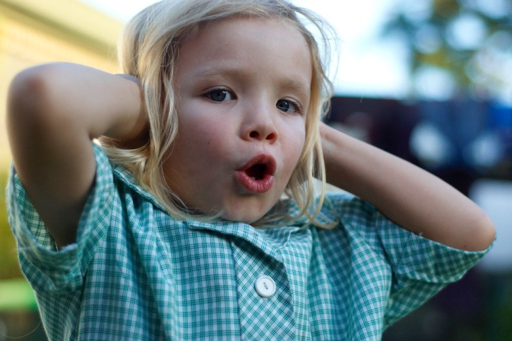
(Source)
According to experts, Misophonia is a condition in which people show moderate to intense reactions, including severe irritation, anger, and aggression, when they encounter some specific sounds and noises. Bear in mind that these sounds may be normal to other people, and they might not even notice them. These include chewing, pen tapping, screeching, whistling, rustling, typing, clicking, ticking, etc.
Apart from the number of emotional reactions, including annoyance, anger, irritation, stress, anxiety, and depression, there are certain physical reactions as well. Several studies suggest the following:
The symptoms are the body’s response when something sudden happens. For instance, the person may experience muscle tightness or a sudden rise in body temperature. However, such a fight or flight response of the nervous system is automatic and can trigger subconsciously or unconsciously.
In simple words, the body perceives certain Misophonia trigger sounds as threats and consequently produces stimuli in accordance with it. Therefore, feelings of panic, rage, and anger are common.
More importantly, misophonic people don’t go to social gatherings and events to avoid sudden reaction outbursts upon encountering Misophonia triggers. Others might go beyond control and isolate themselves, wear headphones unnecessarily, and avoid social interactions.
Misophonia is not yet recognized as a mental disorder in the DSM-5 (Diagnostic and Statistical Manual of Mental Disorders). Consequently, there is a lack of official diagnostic principles. Despite that, scientists consider Misophonia as a discreet psychiatric disorder that is separate from other similar mental health conditions.
In addition, scientists do believe Misophonia is similar to other mental disorders, such as obsessive-compulsive disorder, bipolar disorder, anxiety disorders, and many phobias (hence, “phobia of chewing”). However, they still conclude that none of the said conditions fully exhibit the extent of characteristics that exist in misophonic people.
Those characteristics of Misophonia include:
While there is no official diagnostic approach to Misophonia, numerous treatments are available that may help in alleviating the symptoms of this neurological disorder.
Moreover, you should know that there are no approved medications or prescriptions in the US (by the FDA) for Misophonia treatments. Nonetheless, your doctor can provide a set of prescriptions to help control anger, anxiety, blood pressure spikes, and stress.
Cognitive Behavioral Therapy (CBT) works to improve the understanding of this mental health condition to the misophonic patients and the people around them (i.e., family and/or friends). The core understanding behind how certain trigger sounds might lead to anger or irritation helps Misophonia patients. Thus, they are able to cope with it and improve their reactions to the trigger sounds.
CBT works to establish the rectification of the negative thinking pattern that causes people to fear, anticipate worse, and react adversely even when nothing has happened. Another objective of CBT is to teach patients to control their emotions and avoid irrational reactions.
Some of the techniques include mindfulness, emotional regulation, distress tolerance, etc. Moreover, CBT also helps misophonic patients relax by triggering the relaxation response of the body.
White noise treatment generally refers to the use of ear-level devices that can play sounds, such as aesthetically calm waterfall noises or a river flowing. This helps in masking the unintentional or trigger sounds to prevent adverse reactions.
Eventually, a misophonic patient gets better at ignoring the trigger sounds and focusing on the calm sounds. In simple terms, it is the addition of background music to the environment that only the wearer of the white noise machine hears (i.e., ear-level devices rather than room-level devices such as fans).
Tinnitus is a condition in which a person hears ringing in their ear. The consistent ringing in the ear can cause discomfort and restlessness.
Therefore, TRT helps in controlling the reactions against such noise as well as Misophonia trigger sounds. Likewise, they also help in enhancing the tolerance of the misophonic patient against the trigger sounds.
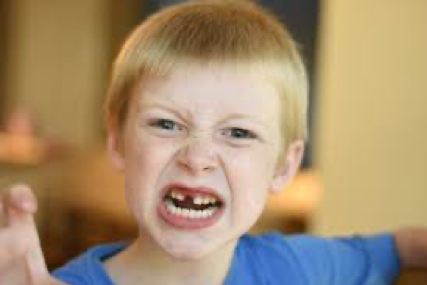
(Source)
Many different therapies also help treat Misophonia and other extreme sound disorders. They include hypnotherapies, neurofeedback, biofeedback, acupuncture, and several autism treatments.
However, there isn’t sufficient research and data to support the effectiveness of these therapies. That said, experts are focusing on the prognosis of this neurological disorder.
If you are in search of treatments for extreme sound disorders for you or someone in your family, then visit the Misophonia Cognitive Center™.
Stephen Geller Katz LCSW-R has extensive experience and knowledge in the field of sound disorders such as tinnitus and misophonia. By using the latest equipment and research principles, Dr. Katz ensures to deliver effective treatment results.
Call 646-585-2251 to schedule an online appointment today.
Visit our main website for more information: https://www.misophoniacognitivecenter.com/
References:
https://www.medicalnewstoday.com/articles/320682#symptoms
https://www.verywellmind.com/misophonia-treatment-4845902
https://misophoniainstitute.org/treatment-options/
https://www.webmd.com/brain/sound-sensitivity-hyperacusis https://en.wikipedia.org/wiki/Misophonia#:~:text=Misophonia%20is%20a%20disorder%20of,fight%2Dor%2Dflight%20response.
https://www.jneurosci.org/content/early/2021/05/20/JNEUROSCI.0261-21.2021
https://www.sciencefocus.com/news/misophonia-scientists-discover-the-brain-connection-responsible-for-supersensitivity-to-noise/
What are the similarities and differences between misophonia and tinnitus? Common sound disorders include tinnitus and misophonia. These conditions relate to the intensity and type of sound. But, both of these conditions have some similarities and differences. If you are confused about distinguishing between both these conditions, this article will help you understand both disorders. So let’s start with tinnitus:
Tinnitus is a common condition that occurs as a result of numerous reasons. In this condition, you start hearing unwanted noise that may or may not come from an external sound source. The condition can be the consequence of an ear infection or blood pressure. You may also develop tinnitus when you suddenly hear a loud noise.

(Source)
The sounds a person hears as a result of tinnitus may vary from person to person. The sound may also differ because of the cause. The most common sound that people experience is a ringing sound. It’s why people refer to this condition as the ringing of the ears. Or, you may hear a buzzing, whistling, grumbling, or hammering sound.
Most people returning from a nightclub or a concert experience a beeping sound in their ears. Keep in mind that loud noise can affect your ears, so it is essential to protect them with earplugs. Tinnitus due to loud sounds indicates damage to your hearing. When this happens due to no reason, it’s a sign that you have tinnitus.
Tinnitus is a genetic condition, and people with a family history are more likely to develop this condition. So if your parents or siblings have experienced tinnitus, you should be careful. Visit an ENT surgeon or a practitioner, and they will share ways on how to protect your ears from the condition.
Tinnitus may increase over time. Also, the condition grows worse with other health issues, such as an ear infection, trauma, and neck injury. Ear specialists diagnose your condition and evaluate the reason for the development of tinnitus. The actual reason for tinnitus is still unclear. Below, you will find some of the common causes of tinnitus:
Your hair cells contain a cochlea, which generates electrical signals. They are tiny and delicate hair cells that move when the ear receives the sound. The movement of these nerves sends the signals to the auditory nerve of the brain. The brain converts these signals from waves and interprets them into sound. When the cochlea in your ear bends, it generates random signals to the brain. This happens because of continuous exposure to loud noise or age. When the brain receives these signals, it continuously triggers the ringing sound.
When your ear canal builds up or earwax, fluid caused by an ear infection, dirt, or other foreign material, it creates pressure in the ear, leading to the characteristic tinnitus sound.
You may develop tinnitus due to various medications. Normally, when you consume high doses of certain medications, your tinnitus may get worse. Sometimes, when you quit using the medication causing this unwanted sound, you start feeling better. Therefore, if you feel that the drugs are the cause of your tinnitus, you should stop using them. If the ringing sound disappears after you quit the medication, discuss it with your doctor so they can prescribe you some other medication. Some common types of medication, such as cancer drugs, certain antibiotics, non-steroidal anti-inflammatory drugs, anti-malarial, antidepressants, and water pills, can cause tinnitus.
Misophonia, unlike tinnitus, is a mental condition and not hearing damage. In this condition, sounds such as swallowing, chewing, smacking, and sniffing, become intolerable. The sound becomes so annoying that you start showing a strong reaction against such actions. Sounds related to the mouth are a common trigger for misophonia. Around 80% of the most triggering sounds come from the mouth. These triggers include popping gum, chewing, whispering, slurping, and eating. On the other hand, 60% of the sounds are repetitive such as tapping, knuckle-cracking, and banging. In some cases, you may also develop visual triggers. When this happens, you feel annoyed even when you watch someone tapping or hammering even the sound is not audible.

(Source)
Misophonia can force you to react with downright aggression or annoyance. The condition can be very severe. Some people avoid visiting restaurants and bars because they fear that triggering sounds will prevent them from enjoying themselves. The current knowledge about Misophonia circulates on few studies. Just like with tinnitus, you can wear plugs to deal with repetitive sounds.
Misophonia is a mental disorder that occurs because of the over-activation of the nervous system. The actual cause of this condition is still unclear. However, Anxiety disorder, oppositional defiant disorder, autism spectrum disorder, attention deficit hyperactivity disorder, neurodevelopmental disorders, or post-traumatic disorders may be the reason for your misophonia. Furthermore, tinnitus can also be the reason for the development of Misophonia. For instance, when you suffer from tinnitus, the constant sound of the cochlea can trigger signals to your brain, causing this mental condition.
Both tinnitus and misophonia can have genetic causes. It means that you’re more genetically predisposed to developing the condition if people from your family have had it as well. Therefore, it is important to consult with a specialist and seek help identifying your risk factors in developing these conditions.
Contact tinnitus and misophonia specialist Stephen Katz LCSW and setup an online session. He treats patients from all over the world who suffer from these conditions. Dr. Katz is fluent in 5 languages and is at the forefront of treating and curing sound disorders.
For more information, visit the main website at: Misophonia Cognitive Center™
What are the causes of misophonia & sound disorders? Misophonia, or the “hatred of sound” in Greek, is also known as selective sound sensitivity syndrome. In this condition, certain sounds and noises trigger various mild to intense reactions in misophonic people. Their general reactions to certain sounds and noises include anxiety, depression, evasive tactics, anger, irritation, and, sometimes, outburst aggression and physical lash-outs.
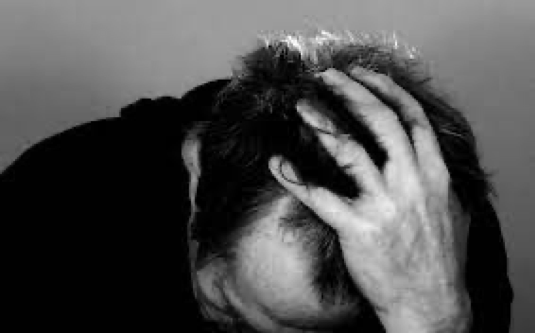
(Source)
Despite a wide range of Misophonia trigger sounds and the respective behavior or reactions, every misophonic person might not react the same way to the same sounds or noises. In fact, while one may be calm or slightly annoyed, the other may show violent behavior or engage in verbal abuse upon encountering Misophonia triggers.
While Misophonia is prevalent in men and women of all ages, there is a lack of research and studies. The term “Misophonia” came into use during studies in the year 2000. It was called selective sound sensitivity syndrome in later years, and due to the spread of awareness, experts are now focusing on different aspects of Misophonia and possible treatment options.
However, Misophonia is not recognized and listed as a mental health condition and sound disorder in the DSM-5.
Misophonia has similar signs and symptoms as other mental health conditions, such as anxiety, bipolar, and obsessive-compulsive disorders. Moreover, it also includes outburst reactions and aggression that severely autistic people show.
Nevertheless, there is no “definite” connection between these conditions and Misophonia (some doctors believe that it is possible). In addition, researchers also believe that Misophonia can occur at an early age without any association with these mental health conditions.
Here are some factors that scientists, researchers, and doctors believe can be potential causes of Misophonia:
Many doctors agree that Misophonia can accompany certain mental health conditions like Tourette syndrome, anxiety, depression, bipolar disorder, and/or OCD in people.
Moreover, if a person is not yet misophonic and has a close blood-related family member with Misophonia, then there is a higher risk of developing the same condition over time.
Few researchers suggest that emotional processing, i.e., the interconnectivity and the working of certain brain components in some people, might give rise to Misophonia and related symptoms.
Tinnitus is a condition that requires special medical care. In this condition, a person hears an unreal ringing sound that no one else is usually able to notice or perceive.
While the awareness has increased, there is still a lack of adequate research and studies to forefront definitive answers to Misophonia. The scale of studies and reports remains small, and thus further biological and empirical evidence is still lacking to confirm certain aspects of the condition.
A recent study shows the key role that the brain plays in a misophonic person’s condition. It suggests that the brain is responsible for assimilating the external outputs with the internal organs and their output. Hence, the production of stimuli that causes the emotion processing of the brain to cause Misophonia in some people.
Misophonia can adversely affect the life of an individual, such as personal and social life. The outburst reactions and the uncontrollable anger can result in disastrous situations, especially where there are a lot of people around.
Subsequently, after reacting, a misophonic person feels guilt and shame, which leads them to avoid social gatherings, events, occasions, and friend circles. They assume that it is better to stay away from intolerable random noises than showing anxious and stressful behavior.
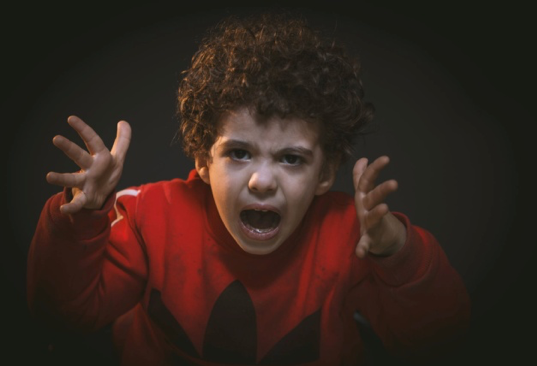
(Source)
On the other hand, some misophonic people find it difficult to sleep as some Misophonia triggers might exist in their house, such as ticking clocks or tapping window panels.
As the Diagnostic and Statistical Manual of Mental Disorder (DSM-5) does not recognize Misophonia for official diagnoses, there are limited treatment methods. However, in 2013, proposed diagnostic principles and researches supported the idea of handling Misophonia as a discreet and separate psychiatric disorder.
The same proposed diagnostic principles outline certain main characteristics of Misophonia in people, as follows:
Regardless of the lack of any official diagnosis, your general doctor might be able to suggest treatment methods or practices for you to cope with this mental health condition.
Do you feel irritation and anger upon hearing certain sounds? Don’t waste time, and get the medical care that you deserve. Contact Dr. Stephen Geller Katz LCSW-R today.
At the Misophonia Cognitive Center™, Dr. Katz utilizes the best systems to dramatically improve or cure serious sound disorders. Dr. Katz is a world renowned specialist who has helped MANY patients overcome the symptoms of Misophonia and related mental health conditions.
Call 646-585-2251 to book an appointment today. Visit the official Misophonia website for more info.
References & related links:
https://www.medicinenet.com/misophonia/article.htm
https://misophoniainstitute.org/what-is-misophonia/
https://www.healthgrades.com/right-care/mental-health-and-behavior/misophonia
https://www.webmd.com/mental-health/what-is-misophonia#2-6
https://www.asha.org/practice-portal/clinical-topics/articulation-and-phonology/#collapse_2https://www.ncbi.nlm.nih.gov/pmc/articles/PMC6034066/#:~:text=Misophonia%20is%20a%20form%20of,or%20stress%20the%20unconditioned%20stimulus.
https://www.verywellmind.com/misophonia-hatred-of-sound-1191958